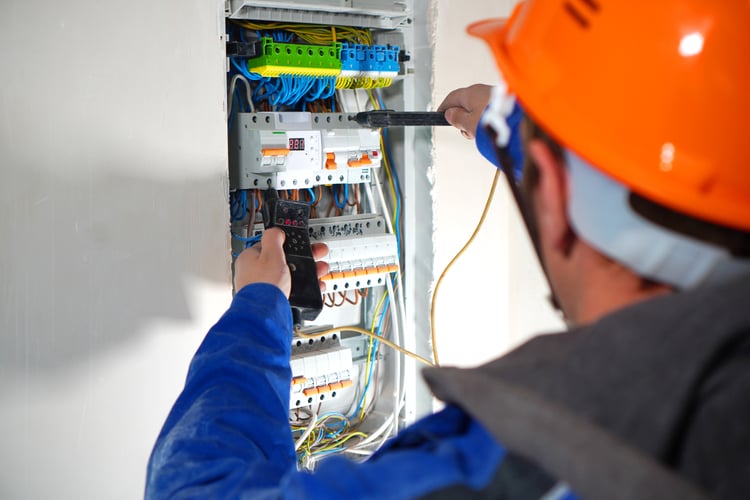Debunking Electrical Installment: Understanding Codes and Rules for a Legal and Safe Setup
In the world of electric setup, adherence to codes and guidelines is critical to ensure both legality and safety. The journey to debunking electrical setup goes beyond mere experience with laws; it requires an extensive grasp of just how to apply secure electric methods effectively.
Relevance of Electric Codes
The adherence to electric codes is critical in making sure the safety and integrity of electrical installations. Electric codes act as a set of requirements and guidelines that dictate the proper design, setup, and maintenance of electric systems. These codes are established to reduce the risk of electric risks, fires, and other security concerns that may occur from damaged electrical work.

Additionally, electrical codes are routinely upgraded to incorporate new technologies, finest methods, and safety measures. Remaining upgraded with these codes is vital for professionals in the electrical industry to ensure that their work satisfies the most recent security standards. Ultimately, the value of electrical codes depends on creating a safe and secure and effective electrical framework that profits both individuals and communities.
Key Regulations for Security
Numerous essential guidelines govern the security requirements in electrical installments. One key regulation is the National Electrical Code (NEC), which supplies guidelines for risk-free electrical layout, installation, and inspection to secure people and property from electrical risks. The NEC covers aspects such as wiring approaches, grounding, overcurrent protection, and tools setup to ensure a safe electrical system.
An additional critical guideline is the Occupational Safety and Health Management (OSHA) standards, which focus on the safety of employees associated with electrical installations (BRE Services). OSHA laws include requirements for proper training, security procedures, and individual safety equipment to protect against workplace accidents and injuries
Furthermore, the International Electrotechnical Payment (IEC) requirements aim to harmonize electrical setup guidelines on a global range. These criteria address issues like electrical equipment safety, electromagnetic compatibility, and power efficiency to advertise harmony and safety in electrical installations worldwide.
Conformity with these vital regulations is necessary to guarantee the security and legality of electric installations, protecting both individuals and building from review the dangers connected with electrical power.
Recognizing National Electric Code
Secret regulations such as the National Electrical Code (NEC) give essential standards for risk-free electrical design, installation, and assessment to make certain the protection of individuals and residential property from electric risks. The NEC, likewise referred to as NFPA 70, is an extensive collection of criteria for electrical setups that are updated every three years. It is developed by the National Fire Protection Organization (NFPA) and is extensively embraced throughout the United States.
The NEC covers numerous aspects of electric job, including electrical wiring methods, grounding, overcurrent security, and devices installment. It intends to protect people and residential or commercial property by resolving possible dangers related to electrical systems. Compliance with the NEC is typically imposed by local authorities having jurisdiction (AHJs), such as developing code authorities and inspectors.
Understanding the NEC is crucial for electric contractors, designers, and inspectors to guarantee that installments meet the necessary safety and security needs. By adhering to the NEC standards, experts can aid prevent electric accidents and make certain the dependability of electric systems in residential, industrial, and commercial setups.

Conformity With Neighborhood Structure Codes
Recognizing and sticking to neighborhood building regulations is vital for making certain the safety and conformity of electric installations within a certain jurisdiction (BRE Services). Local building ordinance vary from one community to an More Help additional, and they are established to guard the well-being of occupants and homes. These codes describe specific requirements for electric installments, such as the kind of electrical wiring to be used, positioning of outlets, grounding methods, and tons abilities. By following neighborhood building regulations, electricians can make sure that setups are done appropriately and fulfill the essential safety requirements.
When it concerns electric installations, failure to abide by neighborhood building ordinance can result in significant consequences. Non-compliant installments might position safety risks, raise the danger of electric fires, and bring about expensive fines or lawful issues. Furthermore, insurer might decline to cover damages resulting from setups that do not fulfill neighborhood building code requirements. It is crucial for electrical experts and professionals to remain informed about and get more purely stick to the local building codes appropriate to their jobs.
Making Certain Safe Electric Practices
Practicing strict adherence to established security protocols is critical in the area of electric installations to reduce potential threats and ensure the well-being of people and residential properties. Security in electric work encompasses numerous aspects, beginning with the appropriate training of employees included in setup, maintenance, and repair. By focusing on secure practices, electric setups can operate successfully while lessening the probability of accidents or damage.
Conclusion
To conclude, adherence to electric codes and policies is important for ensuring the safety and legality of electrical setups. Understanding the National Electric Code and compliance with local building regulations are necessary for a safe setup. By adhering to these guidelines and practicing safe electrical practices, individuals can protect against possible hazards and make certain the proper functioning of their electric systems.
Comments on “Trusted and Specialist BRE Electrical Services for every single Job”